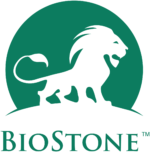Drug Residues
Veterinary drugs used in food-producing animals, such as antibiotics, hormones, and other treatments, can leave behind residues in meat, milk, and other animal-derived products. These residues may pose health risks to consumers if not properly managed. Contaminated food or feed can also lead to acute or chronic effects on both human and animal health. BioStone Scientific supports residue monitoring by offering a portfolio of sensitive, reliable, and easy-to-use test kits that detect veterinary drug residues and other contaminants in food products.
Antibiotics
Antibiotics are used in both human and veterinary medicine to treat bacterial infections. They work by killing microorganisms or inhibiting their growth. While essential for managing disease, antibiotic residues in food can raise concerns about antimicrobial resistance and consumer safety.
Hormones and anabolics
Hormonal residues in meat, milk, and other animal products may present health risks to consumers. Hormones are naturally occurring biochemical messengers that travel through the bloodstream to regulate organ function. In livestock production, synthetic hormones, anabolic steroids, and beta-agonists are sometimes used to promote growth and improve the meat-to-fat ratio, which can result in detectable residues.
Other veterinary drugs
In addition to antibiotics and hormones, animals may be treated with other veterinary drugs that can lead to residue contamination. These drugs include fungicides, anthelmintics, corticosteroids, tranquilizers, and coccidiostats.
BioStone Scientific offers an extensive portfolio of test kits for the fast, simple, and sensitive detection of veterinary drug residues and other contaminants.
| ELISA Test Kits |

